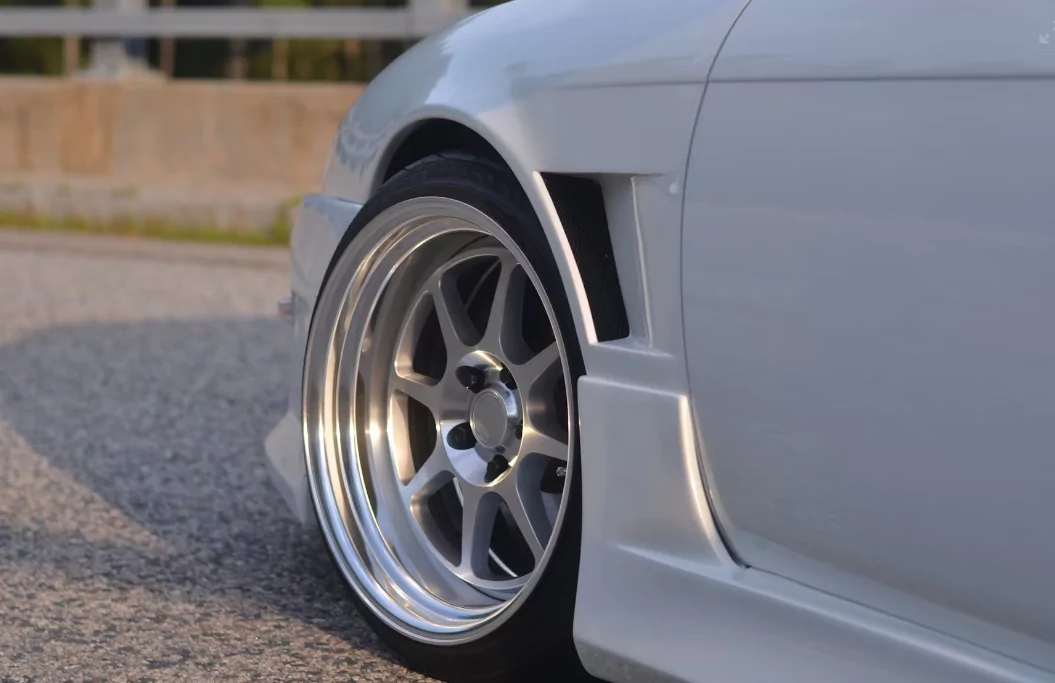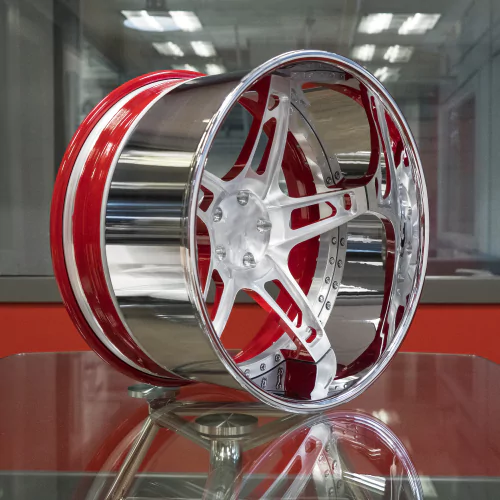Overview of Alloy Wheels
Alloy wheels are favored by car enthusiasts for various reasons. They provide a blend of performance, aesthetics, durability, and cost-effectiveness that is hard to beat. Recognizing the distinct features and advantages of alloy wheels helps explain their high demand in the automotive industry.
Alloy wheels are typically made from a combination of aluminum and magnesium alloys. Aluminum provides a lightweight property, which is crucial for performance and fuel efficiency, while magnesium adds strength and durability. These materials also allow for better heat dissipation, reducing the risk of brake failure from overheating and contributing to overall vehicle safety.
History and Evolution
Early Use in Automobiles
Alloy wheels started making their appearance in high-performance cars in the mid-20th century. Initially, they were used exclusively in racing cars due to their lightweight properties, which contributed to better speed and handling. Over time, the benefits they offered made them appealing for everyday use, leading to their adoption in mainstream automobiles.
Modern Advancements
Modern advancements in technology have facilitated notable enhancements in the design and production of alloy wheels. Contemporary alloy wheels boast greater aesthetic versatility, providing a range of finishes and complex designs. Additionally, technological progress has improved their performance, rendering them lighter, stronger, and more durable than previous iterations.
Benefits of Alloy Wheels
Performance Enhancement
Weight Reduction
One of the primary benefits of alloy wheels is their lighter weight compared to steel wheels. This reduction in unsprung weight improves vehicle handling, making it easier to maneuver the car and enhancing overall driving experience. Less weight also contributes to better fuel efficiency and reduced tire wear.
Improved Acceleration and Handling
The lightweight nature of alloy wheels has a direct impact on acceleration and handling. Reduced mass means the engine doesn’t have to work as hard to propel the wheels, leading to quicker acceleration. Additionally, lighter wheels improve the suspension’s ability to keep the tires in contact with the road, enhancing cornering and braking performance.
Customization Options
Alloy wheels come in a wide range of styles, finishes, and sizes, allowing car owners to customize their vehicles to reflect their personal tastes. Whether you prefer a classic look or a modern, aggressive style, there is an alloy wheel design to suit every preference.
Durability and Maintenance
Strength and Resilience
Corrosion Resistance
Alloy wheels offer superior resistance to corrosion and rust when compared to steel wheels. The combination of aluminum and other metals in their composition provides an inherent shield against environmental factors. This characteristic makes alloy wheels an ideal option for driving in diverse weather conditions, helping them retain both their aesthetic appeal and structural durability over time.
Longevity Compared to Steel Wheels
Thanks to their corrosion-resistant properties and robust construction, alloy wheels tend to last longer than their steel counterparts. This means fewer replacements and repairs over the lifecycle of your vehicle, adding to the long-term value and convenience of choosing alloy wheels.
Easy Upkeep
Cleaning and Polishing Tips
Maintaining alloy wheels is relatively straightforward. Regular cleaning with mild soap and water can keep them looking pristine. For added shine, you can use specialized wheel cleaners and polishes. It’s essential to avoid harsh chemicals and abrasive materials that can scratch or damage the wheel’s finish. With proper care, alloy wheels can maintain their luster and enhance your vehicle’s overall appearance.
Cost Considerations
Initial Investment vs. Long-Term Savings
Fuel Efficiency
While the initial cost of alloy wheels may be higher than that of steel wheels, the long-term savings they offer can outweigh the upfront investment. The reduced weight of alloy wheels leads to better fuel efficiency, which can result in significant savings over time. Lower fuel consumption not only reduces your expenses but also contributes to a greener, more environmentally friendly drive.
Vesteon
Vesteon Automotive Parts (Group) Co., Ltd, is a leading wheel manufacturer based in Shandong province, China. Established in 2005, Vesteon specializes in designing, manufacturing, and selling a variety of wheels, including alloy wheels, which are the preferred choice for car enthusiasts worldwide.
There are over 100 types of Vesteon’s casting alloy wheels, particularly the VT011 and VT018 models, which are a testament to the company’s commitment to quality and innovation. These wheels are crafted from a blend of aluminum and other metals, offering a perfect balance of strength, durability, and lightweight properties. The VT011 and VT018 models, ranging from 10 inches to 30 inches, come in different finishes and styles, catering to the diverse tastes of car enthusiasts.
What sets Vesteon apart from its competitors is its unique services and business philosophy. The company offers OEM manufacturing, and the flexibility to mix steel and alloy wheels. This caters to the diverse needs of their customers and sets them apart from their competitors. Vesteon’s business philosophy is ‘Quality-oriented, Customer focused, International market driven.’ The company aims to be the best product, service, and price provider in the world. So, when considering why alloy wheels are the preferred choice for car enthusiasts, remember Vesteon – a leader in the market for years to come.
Popularity Among Car Enthusiasts
Community Trends and Preferences
In the realm of automotive aficionados, trends and preferences significantly influence the rising popularity of alloy wheels. Enthusiasts consistently seek methods to enhance their vehicles both in terms of aesthetics and functionality, with alloy wheels meeting these needs excellently. The combination of lightweight construction and durability makes alloy wheels a favored option for those aiming to achieve superior performance along with a stylish appearance. Influences from peers and community conversations frequently encourage more car owners to opt for alloy wheels, solidifying their place as a mainstay within the community.
Car Shows and Competitions
Car shows and competitions serve as a showcase for the latest trends and advancements in automotive technology, and alloy wheels are frequently featured in these events. Enthusiasts use these platforms to display their custom mods and performance upgrades, with alloy wheels often being a highlight. The presence of alloy wheels in prestigious events not only boosts their popularity but also influences other car owners to consider upgrading their wheels. Their appeal lies not just in their looks but also in the enhanced performance they offer on the track.
Online Forums and Groups
Online forums and groups dedicated to car enthusiasts are another avenue where the popularity of alloy wheels is evident. These digital platforms are filled with discussions, reviews, and recommendations on various modifications, with alloy wheels frequently taking center stage. Members share their experiences, compare different brands, and provide tips on installation and maintenance. The shared knowledge and collective experiences further cement the position of alloy wheels as a top choice among the car enthusiast community.
Choosing the Right Alloy Wheels for Your Car
Sizing and Fitment
Selecting the right alloy wheels for your vehicle involves understanding the importance of sizing and fitment. The correct size ensures optimal performance and safety, while an improper fit can lead to various issues. It’s crucial to consider the diameter, width, and offset of the wheels when making a choice.
Diameter and Width Specifications
The diameter and width of alloy wheels are crucial aspects to consider for a proper fit. The diameter influences the overall tire size and can affect the vehicle’s ride quality and handling. Choosing a diameter that matches the manufacturer’s specifications is vital to prevent drivability issues. The wheel’s width is also significant as it determines the tire’s contact patch, affecting grip and performance. Wider wheels may offer better traction but could necessitate modifications to the fenders or suspension. Ensuring that the alloy wheels align with your car’s dimensions is essential for achieving the right balance of performance and aesthetics.
Summary
From enhanced performance and aesthetic appeal to durability and ease of maintenance, alloy wheels offer comprehensive choices that meets the needs and preferences of the automotive community. The ongoing advancements in materials and manufacturing processes further elevate alloy wheels as a go-to modification for those looking to upgrade their vehicles. Whether seen at car shows, discussed in online forums, or carefully chosen for specific fitment, alloy wheels are set to remain a favored option among enthusiasts for years to come.



